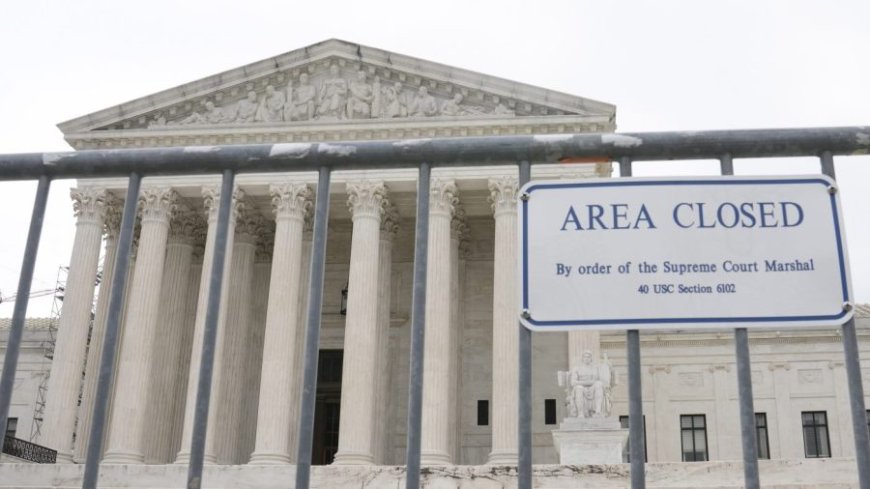The safety and security of US judges must be a bipartisan priority
Congress must adequately fund the judiciary to ensure both the safety of judges and the health of our democracy.

It should go without saying that violence against those fulfilling their civic duty is abhorrent. The recent assassination of a state lawmaker in Minnesota demonstrates that such reminders must sadly be issued.
In recent years, federal and state judges, along with their family members, have also experienced increasing threats and acts of violence. In his “2024 Year End Report on the Federal Judiciary,” Supreme Court Chief Justice John Roberts astutely noted a need for increased safety for federal judges, referencing the tragic murders of federal judges Richard Daronco and Robert Smith Vance, and in more recent years the killing of Daniel Anderl, who was murdered by a man targeting his mother, federal Judge Esther Salas.
“There is of course no place for violence directed at judges for doing their job,” Roberts wrote. Yet, threats of violence are unfortunately growing every year. According to U.S. Marshals Service statistics, threats aimed at judges have more than tripled over the past decade. In the past five years alone, there have been “more than 1,000 serious threats against federal judges,” according to Roberts’s report.
Because of this, the federal judiciary is asking for a 19 percent increase in funding for safety for the 2026 fiscal year. This is not an unreasonable request, given security funding has remained flat for two straight years, despite the escalating threats.
The funding is needed not only to safeguard our judges but our justice system. “The independence of the judicial branch is jeopardized when judges are threatened with harm or impeachment for their rulings,” Judge Robert J. Conrad Jr., director of the Administrative Office of the U.S. Courts and secretary of the Judicial Conference, stated in a May congressional hearing. “Our constitutional system depends on judges who can make decisions free from threats and intimidation. This is essential not just for the safety of judges and their families, but also to protect our democracy.”
Despite the blatant acts of brutality, and an outcry from the Chief Justice, the judiciary is battling for its own protection. Fearmongering and intimidation tactics against judges are growing across social media platforms, often incited by leaders from the co-equal branches of government. At a time when political violence is only worsening, it is evident that the responsibility to protect the judiciary has fallen on those who have served and those who are willing to help.
Organizations such as Citizens for Responsibility and Ethics in Washington, Common Cause and Protect Democracy recently joined together to sign a letter to the House and Senate appropriations committees urging legislators to protect the judiciary, one strong example of efforts being taken to protect federal judges.
We, as retired judges, must act. That is why Keep Our Republic’s Article III Coalition — a group of more than 40 retired federal judges — comes at an essential moment in our country’s history. We must advocate for the safety of our fellow judges, families and our democracy.
As the legitimacy of judicial orders, and judges themselves, are increasingly questioned, we must remind the nation why the role of an independent judiciary — free from the fear of violence — is foundational to our democracy.
There is a reason that judges’ constitutional oath requires that we decide cases without “fear or favor.” Favor is immediately clear. A judge biased towards one party cannot dispense justice.
But fear too impedes the independence of a judge. A judge that is afraid a ruling may elicit violent retribution cannot act impartially.
As Roberts concluded in his 2024 report, “violence, intimidation, and defiance directed at judges because of their work undermine our republic and are wholly unacceptable.” Congress must adequately fund the judiciary to ensure both the safety of judges and the health of our democracy.
Judge Ursula Ungaro (ret.) was appointed by President George H.W. Bush to the Southern District of Florida. Judge Royal Furgeson (ret.) was appointed by President Bill Clinton to the Western District of Texas.
What's Your Reaction?






















